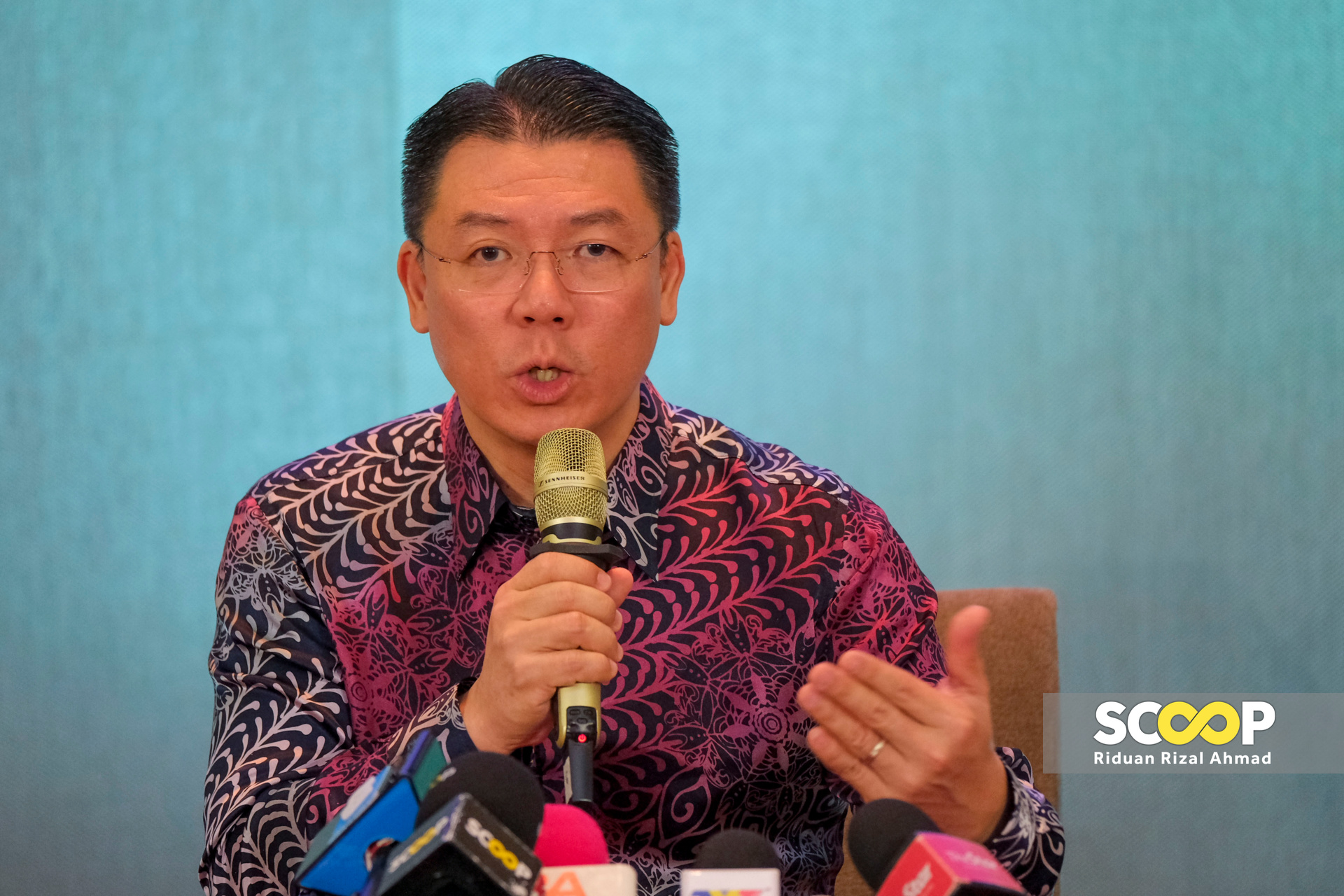KUALA LUMPUR — The Housing and Local Government Ministry plans to take MPs on a road tour to visit dilapidated projects as well as successful renewal projects to show them the necessity of the Urban Renewal Act (URA), Minister Nga Kar Ming said.
“Malaysia has hundreds of ageing buildings, many of which were built before Merdeka. Based on consultation with the Fire and Rescue Department of Malaysia, many of these structures, particularly old flats and public housing schemes, have a lifespan of about 70 to 80 years.
“Deteriorating wiring systems, fire hazards, and poor living conditions pose serious risks to residents,” Nga said.
To emphasise the urgency of urban renewal, the ministry plans to launch a nationwide road tour, inviting MPs to visit sites in need of redevelopment and to compare this with renewed areas.
“This will allow them to see what is before and after impact of urban renewal,” Bernama reported him saying.
Nga was speaking in a press conference held in conjunction with the three-day Asia Real Estate Leaders (AREL) Study Tour to Melbourne, Australia, according to Bernama.
The minister added that the Town and Country Planning Department (PLANMalaysia) and Kuala Lumpur City Hall (DBKL) have identified 534 areas suitable for urban renewal, covering four key aspects: redevelopment, regeneration, rejuvenation, and preservation.
Malaysian developers in urban renewal projects overseas
Nga also highlighted that several top-tier Malaysian property developers are leading major urban renewal projects abroad, and regretted that Malaysia is still arguing about the proposed law while housing areas continue to deteriorate.
He cited the activities of developers such as SP Setia Bhd and Gamuda Bhd’s property arm, Gamuda Land, which are playing a significant role in Australia’s urban renewal efforts.
“Ironically, while these Malaysian firms are transforming foreign cities, similar efforts in their home country remain sluggish,” Nga said.
For context, Gamuda Land is currently developing “The Canopy on Normanby,” located in an up-and-coming precinct within Fishermans Bend, which is Australia’s largest urban renewal project, covering approximately 480 hectares.
Meanwhile, SP Setia has been actively involved in urban redevelopment projects in Australia, particularly in Melbourne, with Sapphire by the Gardens set to become a landmark in the city.
Besides Gamuda and SP Setia, Nga also highlighted other Malaysian developers such as Sime Darby and OSK which have successfully established a presence in Melbourne and other Australian cities.
“OSK’s Melbourne Square development, valued at AU$2 billion, is one of the city’s largest and most significant mixed-use developments. With over 1,400 apartments and 10,000 square metres of retail space, it stands as a testament to the expertise of Malaysian developers in delivering world-class projects,” he said.
Nga said that the government has called on major institutional investors to reallocate at least 70% of their investment portfolio back to Malaysia to stimulate domestic investment.
“Permodalan Nasional Bhd is a shareholder of SP Setia, and we have urged it to scale back overseas projects and focus more on domestic redevelopment efforts.
“The goal is to create greater demand for the ringgit and strengthen the economy by ensuring Malaysian developers prioritise local projects. With an estimated RM5 billion in new projects in Australia, the government has suggested redirecting at least RM2 billion of these investments back to Malaysia,” he added.
Consent threshold more ‘embracing’ than other countries
Set to be tabled in Parliament in July, the URA has sparked heated debates and turned political, with key concerns revolving around the percentage of Bumiputera ownership and the “en bloc” sale of entire strata developments, which has raised fears of potential displacement, particularly among lower-income house owners.
Among the latest to criticise the URA is former prime minister Tun Dr Mahathir Mohamad, who claimed that it would cause Malays to lose their land in urban areas as well as political power.
Opposition coalition Perikatan Nasional (PN) has also claimed it could displace poor urban Malays from their homes. This has been denied by the government, with Prime Minister Datuk Seri Anwar Ibrahim telling Parliament last month that the proposed Act will not result in transfer or eviction of original ownership.
Another contentious point in the URA is the lower consent threshold for en-block sales of strata-titled properties. From 100% owners’ consent currently, the proposed threshold is between 51% to 80% depending on the age of the building and whether it is an “abandoned” project”.
The House Buyers Association (HBA) has been against the lower consent threshold, saying unanimous consent is needed to prevent potential for social unrest.
To these concerns, Nga said the proposed URA will require 80% approval for urban renewal projects, aligning with Singapore’s standard.
In comparison, Melbourne has a 75% threshold for strata properties, while Tokyo and Shanghai require a two-thirds majority.
“Malaysia’s URA is more embracing compared to the other countries as it even covers abandoned projects. In such cases, the government plans to lower the consent threshold to 51% to expedite redevelopment as some developers have fled, and in certain instances, you can’t even find who the owner is,” he added.
It was previously reported that the different consent threshold tiers under the URA are 80% for buildings under 30 years old, 75% for buildings over 30 years old, and 51% for abandoned projects.
The AREL Study Tour brings together over 180 key stakeholders from Australia and Malaysia’s housing and real estate sectors. The event was organised by the Real Estate and Housing Developers’ Association (Rehda) Malaysia Institute and Monash University.
The study trip aimed to provide Malaysian developers with the opportunity to engage with leading Australian experts in areas such as mixed-use developments, retirement villages, sustainable development, social housing, and urban townships. – March 17, 2025

